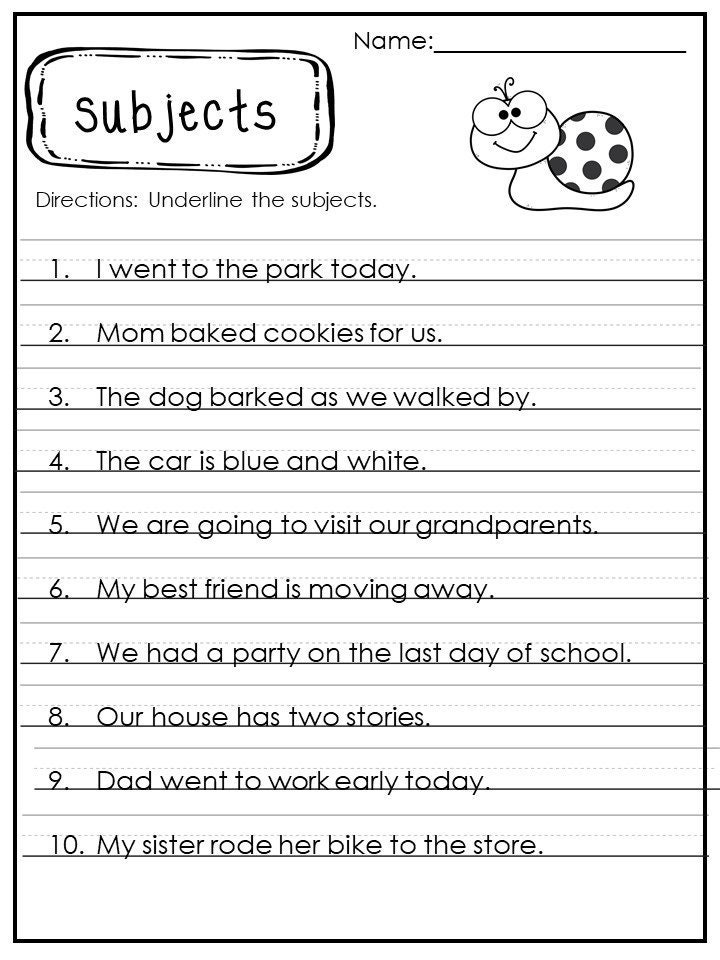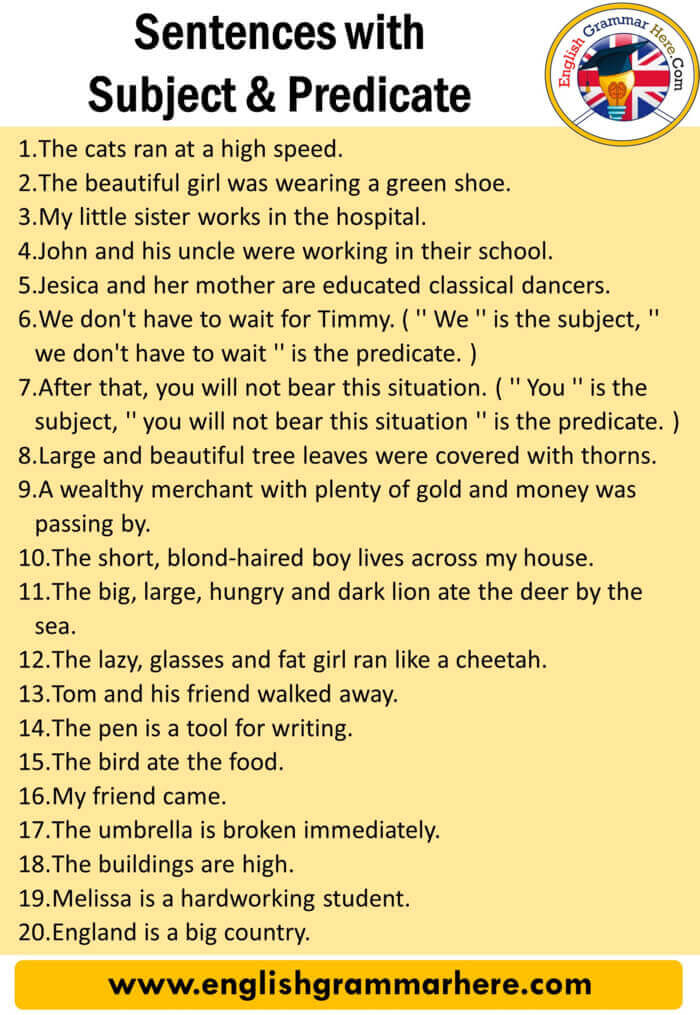

…because it fills a gap in the existing literature.

As such, we can break this one down as well: But the second clause, starting with the subordinating conjunction “because,” has a pronoun and verb of its own. The subject of the main clause and the overall sentence is “This study,” with the rest of the sentence serving as a predicate. Here, we have two clauses: a main clause (i.e., “This study is important”) and a subordinate clause (i.e., “because it fills a gap in the existing literature”). This study is important because it fills a gap in the existing literature. The dog is barking, but the cat is quiet.īut the same applies to complex sentences, even if this is less obvious: And each clause in a compound sentence should have a clear subject and predicate of its own: We’ll look at this below, using the same color coding as we’ve used so far in this post to make the subjects and predicates easier to tell apart (i.e., blue = subject, green = predicate).Ī compound sentence, for instance, has multiple independent clauses linked with coordinating junctions. And every clause in a sentence will have its own subject and predicate. Some sentences have more than one clause (i.e., groups of words with a subject and a verb). Thank you for subscribing to our newsletter! Can a Sentence Have More than one Subject or Predicate? This time, we’ve highlighted the predicates in these sentences (i.e., what the subject was doing or being in each case). More often, though, a predicate is a verb and some modifiers. Here, the predicate is “runs,” which tells us what the subject (i.e., “The shaggy old dog”) is doing.

The predicate in a sentence (or clause) tells us what the subject is doing or being. Notice that, in each case, the subject is the person or thing doing or being something. The subjects of the sentences above are shown in bold. She is learning French in Paris this summer. The year-long study produced exciting results. This can be a noun, a noun phrase, or just a pronoun. The subject is the person or thing that a sentence (or clause) is about. But what are subjects and predicates? Let us explain the basics. And to do that, you need to use a subject and a predicate. This includes writing in complete sentences. When you write, it’s important to use correct grammar.


 0 kommentar(er)
0 kommentar(er)
